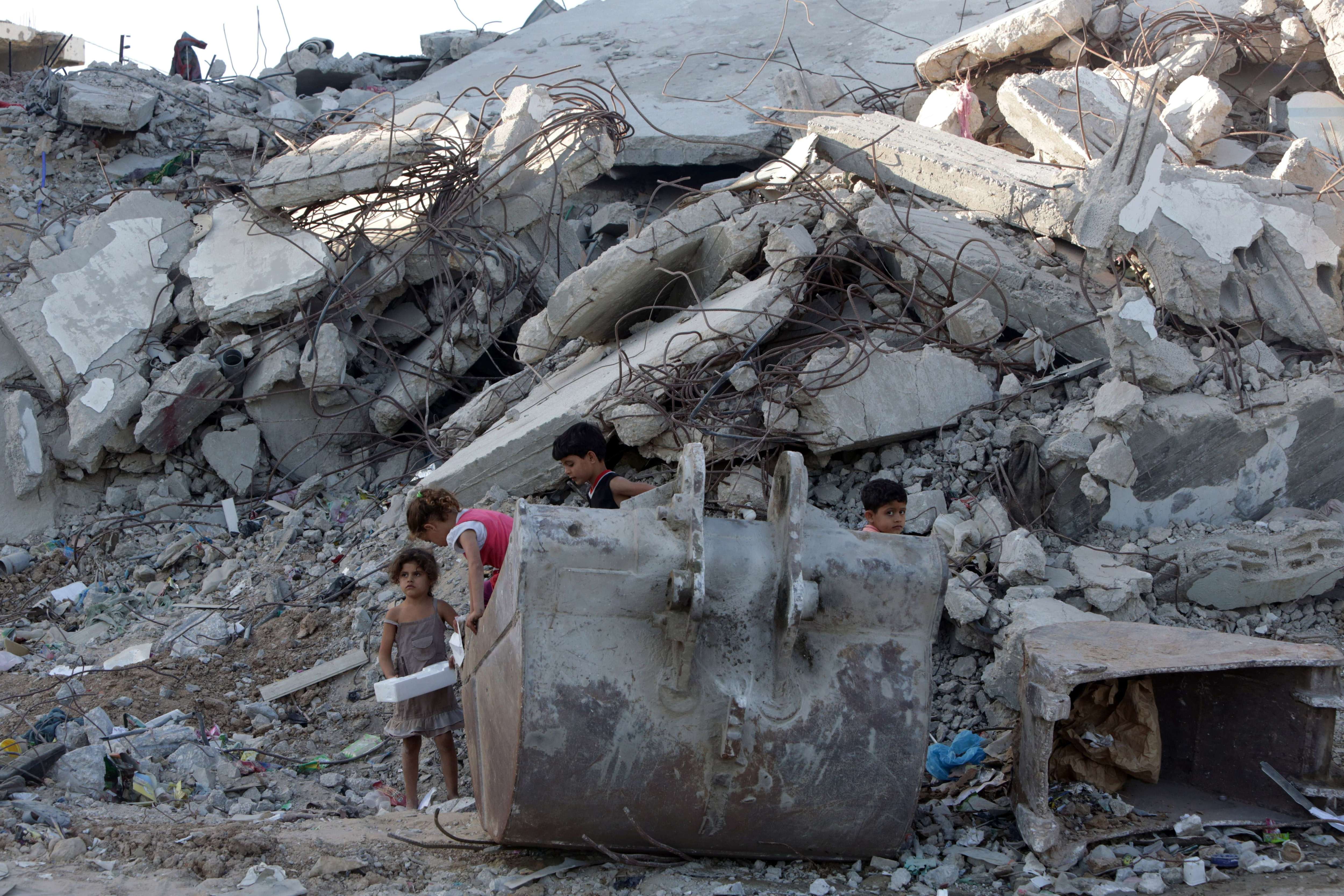The Volokh Conspiracy
Mostly law professors | Sometimes contrarian | Often libertarian | Always independent
Is it "OK to drop a one-ton bomb in the middle of a neighborhood" if you're at war and that's where enemy forces are located?

Mary McGowan Davis, who headed the U.N. commission that investigated last summer's Israel-Hamas conflict in Gaza, tells Ha'aretz (paywall): "We wanted to make a strong stand that the whole use of explosive weapons in densely populated neighborhoods is problematic and that the policy needs to change…. Because it is not OK to drop a one-ton bomb in the middle of a neighborhood."
Of course, one shouldn't gratuitously drop a one-ton bomb or any bomb in the middle of a neighborhood. But Davis's critique doesn't seem limited to gratuitous bombings, but includes the bombing of military targets located in civilian neighborhoods.
If the rule was "you may never bomb [use "explosive weapons"] in a residential neighborhood if civilian casualties may result, regardless of the value of the military target," it's pretty obvious what would happen - enemy forces would simply plant themselves in residential neighborhoods knowing they would be immune from attack.
So, for example, Hamas could launch all the missiles it wanted at Israel from the middle of Gaza City, and use apartment buildings, schools, etc. as staging grounds and headquarters, and Israel would be helpless to respond.
Indeed, Hezbollah seems to be banking on international pressure forcing Israel into exactly such helplessness when conflict next erupts, by moving "most of its military infrastructure into the Shiite villages of southern Lebanon and around their perimeters."
Israel or any civilized country should take reasonable measures to minimize noncombatant casualties, and indeed Israel managed to limit civilian casualties last summer despite operating in heavily populated neighborhoods in Gaza, in part because many missions were called off when the potential civilian toll was considered.
But surely it can't be the rule that if you're at war and there are high-value military targets in a civilian neighborhood, you are absolutely forbidden from using "explosive weapons" against them. (And it's not like the alternative, sending in ground forces to fight house-to-house, is likely to result in fewer overall civilian casualties than precision bombing campaigns.)
Has any country actually adopted such a policy? Would the public of any country stand for its leaders adopting such a policy, exposing the country's own population to attack while their own military stands down?
UPDATE: David Horovitz, one of the very best commentators on Israel-related affairs, has some choice words for Ms. Davis.


Show Comments (0)